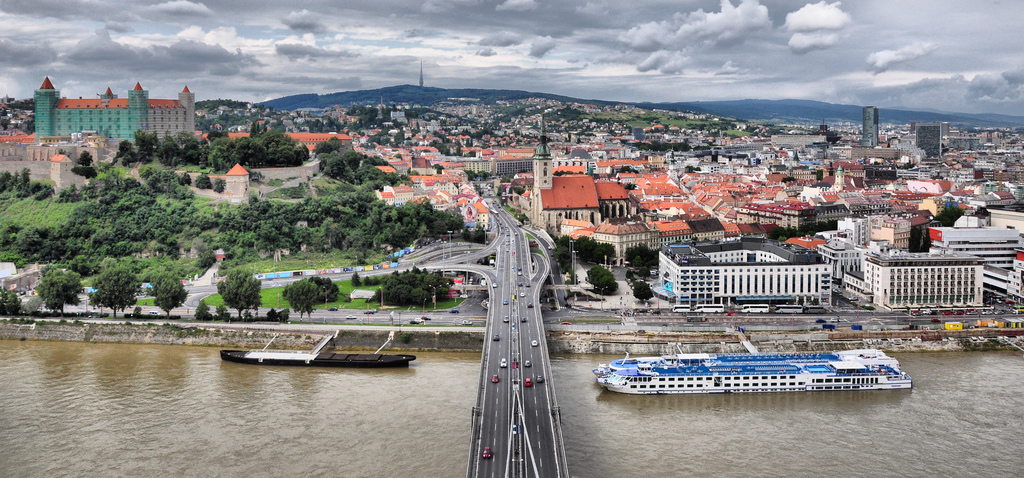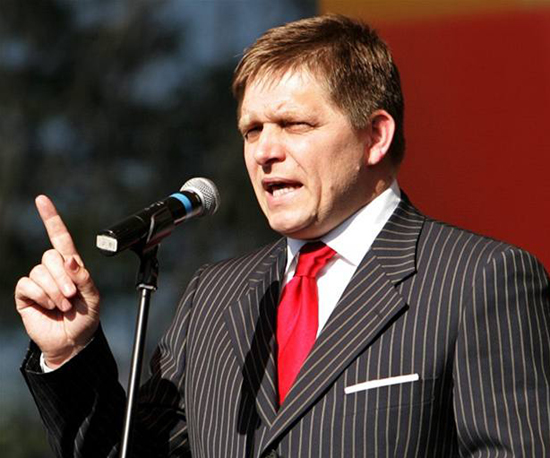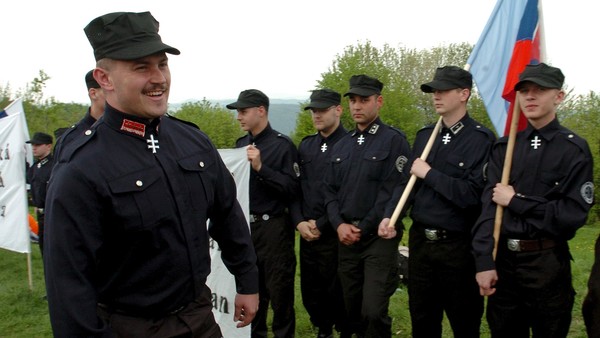Slovakia’s Elections: Neo-Nazi Tinged Politics
 Creative Commons xlibber
Creative Commons xlibber
Global newscasts and headlines rarely turn their attention to Slovakia, since low debts and steady growth in an EU state are poor pickings for the news cycle. Yet Slovakia’s election this month merits global attention for two reasons: firstly, a fully fledged Neo-Nazi party is in parliament with 8% of the popular vote and secondly, most of the political spectrum shares many of its xenophobic views.

The Peoples Party of Our Slovakia (PPoS) broke the 5% entrance barrier to win 10% of parliamentary seats, which in itself might not be that shocking given the rise of the far right in Europe, except for the fact that the party is modelled on the Nazi-allied Slovak puppet state in WWII. Overall the election was won by Prime Minister Robert Fico and his Social Democrats with 28% of the vote, but short of the majority needed to govern. This likely means that the Social democrats will be forming a coalition government with a range of right-wing parties. In much of Europe a Social Democratic party forming an alliance with a range of right-wing would is hindered by numerous policy divides, including refugee policy. In Germany, for example, the Merkel’s Social Democrat-Christian Democrat coalition is being gradually pulled apart by differences over willkommenskultur (“welcome culture” for migrants). In Slovakia, however, this would not be an issue; the left/right difference over migration policy that characterizes western Europe is not present, with the Social Democrat’s PM vowing not to accept “one single Muslim migrant”. This type of comment is near unimaginable coming from the west’s leading politicians, with the notable exception the American republican frontrunner candidate. And in turn the European Alliance of Socialists and Democrats has censored Slovakia’s Social Democrat party.
The PPoS stands out among Europe’s far right parties as the carefully tended ambiguity over its Neo-Nazi connections is absent. Parties like Germany’s National Democratic Party make a habit of disavowing neo-Nazi connections, despite evidence to contrary and instead focus attention on their anti-migration policies. In the case of the PPoS Leader Kotleba, this is near impossible with photos of his former “Slovak Brotherhood” party members marching in black uniforms that are eerily reminiscent of the black Hugo Boss designed uniforms of the SS. The Brotherhood first appeared in rallies for a Catholic Priest who had facilitated the expulsion of Slovak Jews to Nazi labour camps. While the Brotherhood was banned in 2006, its neo-Nazi form took shape again under Kotleba who successfully led it to govern in one of Slovakia’s eight regional governments.

The growth of the PPoS is difficult to pin to any single one cause, but discontent at a 24% unemployment rate and political corruption do little to explain the sudden voter support. With 23% of the votes among 18 to 21 year olds going to the party it seems that other conditions have also driven up support for the far-right, especially among the young. Prime Minister Fico in the lead up to the election embraced an anti-migrant stance, especially in dealing with the EU’s quota system and Muslim refugees in particular. He has dismissed multiculturalism as “a fiction” and declared that the country was “established for Slovaks, not for migrants”. Statements like “We’ll never bring even a single Muslim to Slovakia, we won’t create any Muslim communities here because they pose a serious security risk” seem to not fly by the common sense that exceedingly few refugees are security risks but also the reality that Slovakia only received 169 asylum requests last year of which 8 were accepted. It seems that much of the rhetoric from the government symbolised by its campaign slogan of “We Protect Slovakia” is linked to disappointing economic growth and political scandal rather than than an invasion of migrants. While the emphasis placed on its anti-migrant stance is relatively new to the Social Democrats, bizarre allies of convenience are not: for instance, the 2006-2010 government partner leader vowed to “get in our tanks and go flatten Budapest”.

Without an outright majority, a coalition government that includes far-right parties is a distinct possibility. In the run up to elections, Slovakia’s established political parties efforts to maintain power was built on adopting rather than discouraging anti-migrant sentiment that is more typical of the far right and the Neo-Nazi PPoS. Yet instead of taking the wind out of the sails of the insurgent parties, their adoption of an anti-migration discourse has rendered a political force to propel the far-right into parliament. As centrist politicians around Europe look for an answer to the rise of the anti-migrant far right, there are lessons from Slovakia’s election about what to do, and what not to do.
